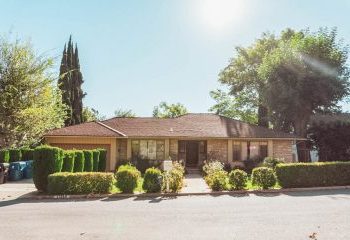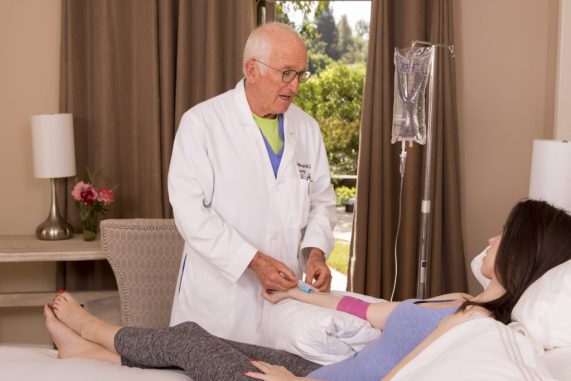Novo Detox is a treatment center with a detox and inpatient rehab facility that is fully accredited by The Joint Commission, the California Department of Health Care Services, and the Substance Abuse and Mental Health Services Administration (SAMHSA).
We are the best detox and rehab center for addiction for Dallas, Texas residents because we have a full staff of caring and empathetic, dedicated experts available to our patients 24 hours a day, 365 days a year. Our drug and alcohol detox and rehabilitation programs have a high recovery rating, with our patients avoiding the ping pong effect.
Our Gallery
Why patients choose detox & rehab programs at Novo?
Focus on safety & comfort
24/7 supervised detox
Top Rated facility
Effective treatment
Healthy meals
Quick admissions
Evidence-based Therapy
Great locations Nationwide
- Rehab Near Me: Best Detox & Rehab Center For Addiction in Dallas
- Highest Rated Alcohol Detox Program
- Drug Detox Program
- Top Alcohol Rehab in Dallas
- Drug Rehab in Dallas
- How Much Does Rehab Cost in Dallas?
- How Long Is Detox?
- How Long Is Rehab?
- 30 Day
- Long-Term Rehab
- Additional Therapies & Addiction Treatments Available
- Does My Insurance Have Coverage For Rehab?
- MAT
- Cognitive Behavioral Therapy
- Dialectical Behavioral Therapy (DBT)
- Rational Emotive Behavioral Therapy (REBT)
- Dual Diagnosis Treatment
- EMDR
- Relapse Prevention
- Life Skills Training
- Vocational Training
- Group Therapy
- Experiential Therapy
- One-on-One Therapy
- Family Therapy
- Trauma Informed Therapy
- Physical Fitness
- Off-Site Activities
- 12-Step Rehab in Dallas
- Anxiety Disorder
- Bipolar Disorder
- Borderline Personality Disorder
- Codependency
- Depression
- Impulse Control Disorder
- Post-Traumatic Stress Disorder
- Why Choose Novo Detox?
Rehab Near Me: Best Detox & Rehab Center For Addiction in Dallas
If you live in the Dallas, Texas area and are struggling with substance abuse, you must partner with a recovery center that will provide you with the help and support you need during this stage of your addiction treatment journey. As a top-rated detox and rehab center, the Novo team offers the tools you need to navigate through your alcohol addiction or drug addiction. We understand that substance abuse is something that has an impact on every person in a unique way. This is the leading reason why we offer a myriad of individualized recovery programs which will help you through the process of overcoming your drug abuse or alcohol abuse.
Although there are several Dallas drug and alcohol rehab centers, we consider ourselves the top rehab in the area for many reasons. First and foremost, we understand that alcoholism and drug abuse is something that is a disease. Therefore, instead of treating a person as if their drug or alcohol abuse is something that they should be ashamed of, we take the opportunity to get to know that individual. From there, we can help you to find a treatment option that works best for you. Our treatment team also has a wide range of experience in working with clients from all walks of life. Regardless of whether you’re native to the Dallas Texas area or come from another part of the state or even the country, our rehab center will welcome you with open arms and help you find the recovery treatment program that works best for you.

Highest Rated Alcohol Detox Program
Many people struggling with substance abuse may need to begin their recovery program in alcohol detox. Detox can be a challenging part of your recovery journey because this is a period of time when you will feel physically and psychologically unwell due to withdrawal symptoms. Withdrawal symptoms impact every person differently which is why we offer a medical detox program. Medical detox will provide access to medication that can help you better manage your withdrawal symptoms and prepare you for more meaningful participation in residential inpatient or outpatient treatment.
Drug Detox Program
In some ways, drug detox is similar to alcohol detox in the sense that you will go through a period of experiencing withdrawal symptoms which will make it difficult for you to care for yourself. Withdrawal symptoms can impact every person differently. Here are just a few examples of withdrawal symptoms that a person may experience during their time in drug detox:
- Nausea
- Cravings
- Shakiness
- Sweating
- Fatigue
- Body aches and pains
In extreme cases, there is also the possibility that you may experience seizures during the time that you’re going through withdrawal symptoms or even death. Although it may seem like a more comfortable option to be home during this time, the reality is that taking this step could put you in tremendous danger and should be avoided at all costs. The safest thing for you to do is to commit to an inpatient detox program to ensure that you receive the help and care you need at this stage of your recovery.
Top Alcohol Rehab in Dallas
When you’re struggling with alcohol addiction, it may feel like you’re falling down a black hole. There is no end in sight and you feel as though you can’t pull yourself out of whatever it is that you’re struggling with. To truly overcome your addiction, the best thing you can do for yourself is commit to working with a treatment team in a structured and sober environment. This is something that is offered through an alcohol rehab program. When you’re in alcohol rehab in Dallas, you can focus exclusively on yourself and what you need to do to treat your addiction. You will work closely with your addiction treatment team to uncover the root cause of your addiction so that you can take steps toward living a healthier and more fulfilling life.
Drug Rehab in Dallas
Dallas drug rehab is designed to provide you with access to the tools and resources needed to live without the influence of addiction. At Novo Detox, our focus is to provide you with the type of environment that you need to address the root causes of your substance abuse. For clients that decide to take advantage of an inpatient treatment program, we strive to provide you with a home away from home type of environment that will help you to relax and recover. For clients that opt to go through an outpatient treatment program, we will work closely with you to ensure that you have the structure you need to not feel as though you need to choose between your sobriety or the other responsibilities you have in your life.
How Much Does Rehab Cost in Dallas?
One of the understandable questions that you may have when it comes to your alcohol or drug treatment program revolves around the cost of the levels of care that we offer. The answer to this question is specific to the type of treatment program that you decide to commit to. At Novo, we help each client to develop a substance abuse program that is individual to them. Therefore, an inpatient drug treatment program will likely be more expensive than an outpatient treatment program. If you decide to commit to a longer program, you may have more of a cost.
How Long Is Detox?
On average, you will need to spend approximately seven days in a drug or alcohol detox. You can expect to experience the worst of your withdrawal symptoms within the first 72 hours from the time that you last consumed your drug or drink of choice. You will begin to feel much better during the end of your week in detox. This will give you the stability you need to transition into a treatment program and benefit from it. Keep in mind that depending on your drug of choice as well as the severity of your disease, there is a possibility that you may need to spend more time in a detox program. This is something that your treatment team will speak with you about.
How Long Is Rehab?
One of the wonderful things about developing a treatment plan is that it gives you a new lease on life and you will learn more about what it means to take control over certain parts of your life. You can decide to commit to a 30-day, short-term rehab or you can opt to work through a longer 60 to 90-day recovery plan.
30 Day
A 30-day treatment plan is considered to be a short-term treatment program. Many people feel more comfortable opting to work through this treatment option because they don’t want to commit to a longer recovery program or they can’t due to limitations that they may have due to work or school. Keep in mind that if you decide to start off in short-term, 30-day rehab, you can always extend your treatment program into a longer 60 or 90-day recovery program if you feel as though you need more time in recovery.
Long-Term Rehab
A 60 or 90-day treatment program gives you an excellent opportunity to build on the initial tools that you learned during your first 30 days in treatment. This extended period can help you feel more confident in your addiction treatment and open yourself up to learning new techniques to maintain your sobriety. Whenever possible, it’s always recommended that you take advantage of a long-term rehab program.
Additional Therapies & Addiction Treatments Available
Addiction therapy is something that will be at the cornerstone of any addiction. If you have never experienced therapy before or it has been quite some time since you have done so, it’s understandable that you may think that addiction therapy is something that feels awkward or uncomfortable. However, when you openly and honestly commit to therapy, you will come to find that you can develop a better sense of understanding when it comes to addiction as well as what you need to do to maintain your sobriety.
Does My Insurance Have Coverage For Rehab?
Keep in mind that our Dallas rehabs accept private insurance. Therefore, there is a strong possibility that most of (if not your entire) stay in addiction treatment could be completely covered through your private insurance provider. One of the things that you should always do is verify your insurance either through your carrier or through our treatment team. Our team is always available to help you during this process so if you need any assistance, don’t hesitate to let us know.
MAT
Did you know that certain medications can help you to better manage your withdrawal symptoms or the psychological ramifications of addiction? At Novo, we offer medically assisted treatment plans that can help you do that. These medications can help to reduce the cravings that you may be experiencing and assist in better managing the mental health concerns that may have developed before or during the time that you were in active addiction. Some people mistakenly think that medically assisted treatment is akin to “taking the easy way out” regarding addiction recovery. The reality is that taking advantage of medication-assisted treatment is taking brave steps in your recovery because you are openly admitting that you have issues with addiction and you’re reaching out for every tool that you can to address them.
Cognitive Behavioral Therapy
The focus of cognitive behavioral therapy is to help to reduce the impact that certain mental health conditions may have on you including depression and anxiety. When you’re able to take a step back and process what you have experienced in the past and have the tools to work through these events, you will find that you don’t have to rely on drugs or alcohol.
Dialectical Behavioral Therapy (DBT)
Dialectical behavioral therapy has been shown to have great results for a person that may suffer from a mood disorder. This evidence-based form of treatment is something that may take some time to develop. However, you will come to find that there are many things that you can process or react to better as a result of working through this form of therapy.
Rational Emotive Behavioral Therapy (REBT)
Rational emotive behavioral therapy can help you to identify negative behaviors or reactions to certain situations and help you to correct those reactions. While you were in active addiction, it’s understandable that you may have had less than stellar reactions in some cases. However, now that you are learning what it means to be a healthier individual both physically and psychologically, it’s important that you can identify these types of behaviors and reactions and change them going forward.
Dual Diagnosis Treatment
If you have been diagnosed with a mental health condition such as anxiety, depression, or PTSD, a dual diagnosis treatment plan is something that can help you to navigate through your addiction as well as your mental health conditions. Working on addressing both of these issues together is something that can help to protect you from falling back into addiction going forward. While there is still a negative stigma on mental health, you should always do everything you can to get yourself healthy both physically and mentally.
EMDR
EMDR, also known as eye movement desensitization reprocessing therapy, is a form of therapy that can help you better address the traumatic events in your life that you may knowingly be able to recollect and some events that you may not be able to consciously reconnect. At Novo, our treatment team is specifically trained to guide a client through this form of therapy. The number of sessions that you will need will depend on the traumas and how well you respond to each treatment.
Relapse Prevention
Relapse prevention is key during your overall recovery. It is important to learn what some of the red flags are when it comes to possible relapse and what steps you can take to avoid relapse. If you do relapse, you should immediately reach out for help. While you may feel embarrassed due to your relapse, when you reach out to our treatment team for help, we will provide you with the immediate care you need to get back on course with your treatment.
Life Skills Training
During the time that you were in active addiction, there is a strong possibility that you may have missed out on learning certain life or coping skills that can help you to become the best version of yourself. During treatment, you will have the opportunity to learn these life skills, which can benefit you as a person overall, not simply as a person working through an addiction treatment program.
Vocational Training
When you are so focused on addiction, your goals for yourself and your career are something that often gets thrown to the side. Vocation training can give you the chance that you need to fine-tune your vocational skills so that you can take steps toward getting a job that will make you feel complete. If there is a certain form of vocational training that you’re interested in, simply let us know, and we will do everything that we can to get you the tools that you need to complete this type of training.
Group Therapy
If you have ever attended a Narcotics Anonymous or Alcoholics Anonymous meeting, you will notice that a group therapy session is something that will closely follow the model that you experienced during these meetings. You can share your thoughts or experiences regarding the topic during group therapy. In turn, you will also listen to the experiences and shares of other people that are in your group.
Unfortunately, a downfall of addiction is that this disease is something that can make you feel completely alone. Group therapy will help to show you that you are not alone and that there are people out there who have had similar experiences. Group therapy is an excellent way for you to be able to develop your system of support which is vital in maintaining your sobriety.
Experiential Therapy
Sometimes, it’s too painful for a person to recall certain memories and events on their own. Experiential therapy is something that taps into using certain props or techniques to be able to process these events. From art therapy to music therapy to guided imagination, all of these tools are something that we tap into a Novo so that you can recover in a less stressful way.
One-on-One Therapy
One-on-one therapy, also known as individual therapy, can help you connect with your treatment team in a more personalized and private setting. There is a likelihood that there are certain events in your life that you don’t feel comfortable sharing in a group setting. Individual therapy will help you to express these events safely so that they don’t hold you back from reaching the goals that you have for yourself in your recovery.
Family Therapy
Have you experienced relationship issues with your family? If the answer is yes, then you wouldn’t be the first person with an addiction issue to experience this. Often, a person who is working through addiction treatment realizes how much they miss their family and are interested in ways that they can redevelop these relationships. Family therapy is a great way to be able to do this. During family therapy, you will have the opportunity to meet with your family members in a calm and neutral environment to begin to work through some of the issues in your relationship that may be holding you back from having a healthy relationship. Remember that this will be done only when you come to a place in your recovery where you feel you’re ready to tackle some of these challenges.
Trauma Informed Therapy
Did you know that trauma could be at the root of the development of your addiction? Trauma-informed therapy will help you address the traumas you have faced in your life without possibly re-traumatizing you. While facing these traumas can be scary, it’s important to face these events so that they are something that won’t hold you back in the future.
Physical Fitness
Physical fitness should always be part of your overall addiction treatment plan. Exercising regularly allows your body to release endorphins, a chemical that can make you naturally happy. When you feel good physically and psychologically, you have a better chance of maintaining your sobriety. We encourage you to let us know if you would like us to connect with the personal trainers that we have at Novo Detox
Off-Site Activities
Although our treatment facility will provide you with the sober and safe environment you need as you begin to work through your addiction treatment, it’s also important that you don’t isolate yourself from the world for an extended period. This is why we organize different off-site activities that will help you “stretch your legs” when interacting with the real world and also put some of the tools you learned during the time that you’re in treatment into use.
12-Step Rehab in Dallas
If you have ever attended an Alcoholics Anonymous or a Narcotics Anonymous meeting, the 12 steps are something that will sound familiar to you. The 12 steps are something that can be incredibly beneficial in your overall recovery because they will help you to take steps toward developing a better realization of how addiction has not only impacted you but how your dependence may have impacted people around you. The 12 steps can also help you remain accountable regarding what you’re thinking and the decisions regarding your recovery and your life, in general, going forward.
Anxiety Disorder
It’s impossible to completely avoid anxiety during your life. However, when your anxiety becomes so overwhelming that you’re unable to live a healthy life, you may suffer from an anxiety disorder. Many people turn to drugs or alcohol as a way to better manage their anxiety. Unfortunately, drugs and alcohol only exacerbate anxiety. In turn, that individual may mistakenly believe that their substance abuse is helping them and if they only took more of their substance of choice, they would get the relief that they are searching for. As a result, a vicious cycle of addiction begins to develop.
Bipolar Disorder
Bipolar disorder is a mental condition that is defined by manic highs and depressive lows. Many things could cause bipolar disorder. Genetics and environment could play a factor in the development of this condition. If you have been diagnosed with bipolar disorder, your treatment team will help you to determine which type of bipolar disorder you have. We can help you to put together a medication schedule that will help you to better manage the symptoms of bipolar that you’re experiencing while avoiding giving into the temptation of addiction.
Borderline Personality Disorder
A borderline personality disorder is a condition which is defined as a condition that causes a person to have unstable moods, relationships, and behaviors. The genesis of borderline personality disorder isn’t always known. However, it is something that could cause a person to make impulsive decisions, lead to self-harm or have irrational reactions. Although borderline personality disorder is something that can be worked through during talk therapy, there are certain cases where a person may need medication to treat the condition.
Codependency
Codependency is a serious concern among individuals who are struggling with addiction and their family members. When a person is codependent, they inadvertently feed the negative behaviors of a person that they love. Codependency is something that should be addressed with your family members and loved ones to ensure that certain codependent behavior doesn’t set you back and lead you down the path of addiction again. It’s also important to recognize the fact that you, yourself, could be codependent with another person. Rehab will give you the chance to take a step back and really look at your own behaviors and define which ones are healthy and which ones are not.
Depression
Depression is an example of a truly debilitating psychological condition. Depression is more than just feeling sad every once in a while. Depression makes you feel as though you have a constant heaviness on you that you’re unable to come out of on your own. Depression has led to self-harm or even suicide in many conditions, which is why it’s a condition that should always be addressed in conjunction with your addiction treatment.
Impulse Control Disorder
An impulse control disorder is a psychiatric condition that makes it difficult if not impossible for a person to be able to control their impulses toward a certain behavior. It’s not uncommon for a person suffering from a drug or an alcohol addiction to also suffer from this type of condition. The root cause of this type of disorder is different for every person. However, you must take time to develop a better understanding of the root cause of this condition because that will likely help in unlocking the reasons for the development of your alcohol addiction as well.
Post-Traumatic Stress Disorder
Post-traumatic stress disorder is something that can wreak havoc on the life of any person. Post-traumatic stress disorder, also known as PTSD, is something that can develop for many reasons. The development of this condition results from a person experiencing a particularly traumatic event that they cannot move past unless they receive professional psychiatric help. Veterans, police officers, and even those who have experienced some type of abuse during their lives are susceptible to developing PTSD. If you have a PTSD diagnosis, please be sure to let your treatment team know so they can consider it as they are planning for your addiction treatment plan.
Why Choose Novo Detox?
As one of the best rehab centers in Dallas, the treatment programs that you will find at Novo Detox are second to none. From partial hospitalization programs that give you the flexibility that you need in your treatment program to residential inpatient programs that provide you with the structure that you may need as you work through your drug addiction or alcohol addiction issues, you can take comfort in the fact that our team will guide you every step of the way. We encourage you to get in touch with us today and learn more about the treatment programs that are available to you. A member of our team is available right now to help you get started. We look forward to hearing from you and helping you to develop a plan that helps to remove the influence of addiction and make you the best possible version of yourself.










